Due to the return of Russian and Chinese buyers, driving prices up by 15-20% in some Thai properties.
Birmingham, as the UK’s second-largest city and financial center, boasts excellent transportation connectivity to major cities like London, attracting a large influx of young professionals and creating a high demand in the real estate market. Why is 2024 the golden time to invest in Birmingham? Let us guide you through how the latest UK policies for 2024 are reshaping the property market.
Interest Rate Cut in the UK
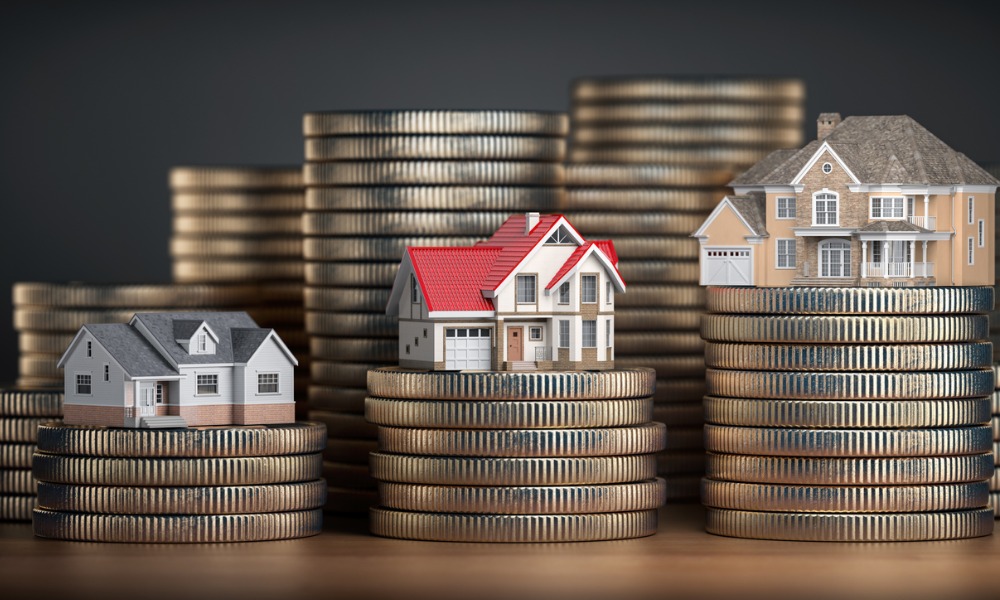
For the first time in 4 years, the UK has reduced interest rates, prompting new buyers to return to the market in search of residential units, improving the overall market sentiment. The Royal Institution of Chartered Surveyors announced a balance index in July, with the new buyer inquiries index rising from -6% in June to +2% in July, marking the first positive turn in numbers in the past 4 months. The Labour Party’s focus on boosting the property market has led to increased market activity, with both the market and experts optimistic about its upward trajectory.
£65 Billion HS2 Infrastructure – Sole Connected City
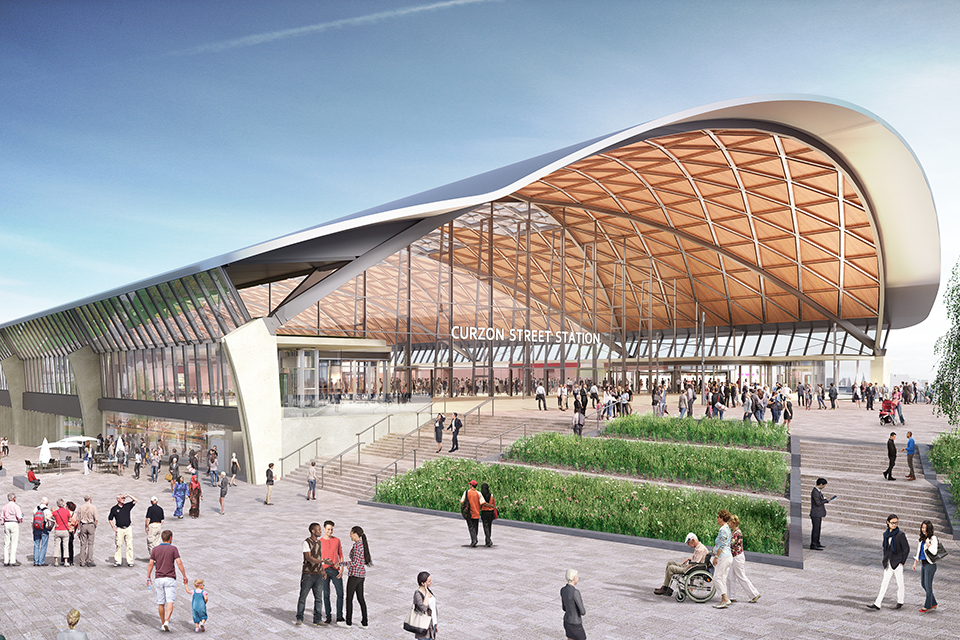
Birmingham serves as a vital transportation hub in the UK, and the construction of the major infrastructure project, the high-speed rail HS2, will position the area as one of the main stations on the HS2 high-speed rail line in the future. This will significantly reduce travel time to and from London to as little as 38 minutes, enhancing Birmingham’s overall appeal. Anticipated developments around the HS2 station will include a plethora of high-end residential, office, and commercial facilities, benefiting properties along the line with substantial appreciation potential.
International Financial Giants and Government Entities Flocking In – Long-Term Property Supply Shortage in the UK
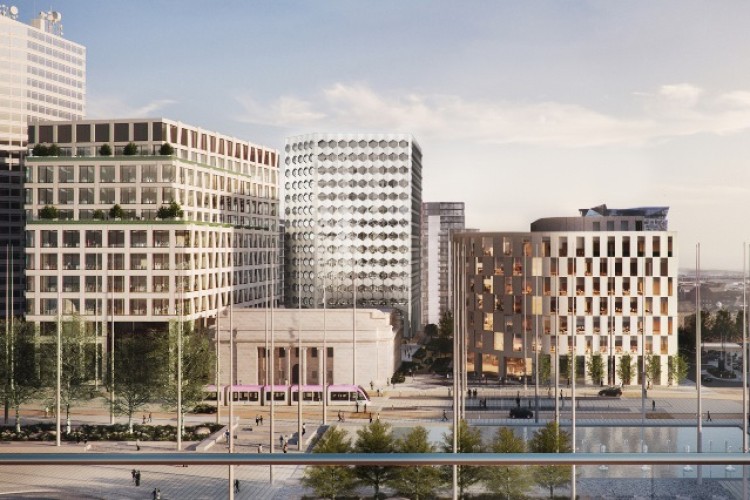
Following the construction of the HS2 high-speed rail line, Birmingham’s city center will solidify its position as the primary CBD in the city. Numerous multinational corporations are optimistic about Birmingham’s future prospects, establishing headquarters and offices in the area. Global Fortune 500 companies such as Deutsche Bank, HSBC, J.P. Morgan, IBM, and more have signed long-term leases to set up operations, attracting a wealth of talent and contributing to a tight housing supply in Birmingham’s core areas. From an investor’s perspective, the scarcity of properties has led to continuous price increases, making nearby properties sought-after assets and presenting a significant investment opportunity.
Register Now for the Exclusive Preview of Prime B1 Property in Birmingham Seminar
Ashton Hawks offers exclusive priority access to prime properties in Birmingham, with only 5 pre-sale quotas available. If you wish to stay ahead of the latest market trends in Birmingham, secure a copy of the price list and enjoy exclusive early bird offers, be sure to register for the priority session of the Birmingham Property Investment Seminar on August 24-25. Seize the opportunity for appreciation in advance!
With house prices and mortgage rates rising, it has become even more difficult for first-time buyers to get on the property ladder. In Greater Manchester, the average price of a home is now £257,700 which has gone up by 16 percent since the peak in 2020.
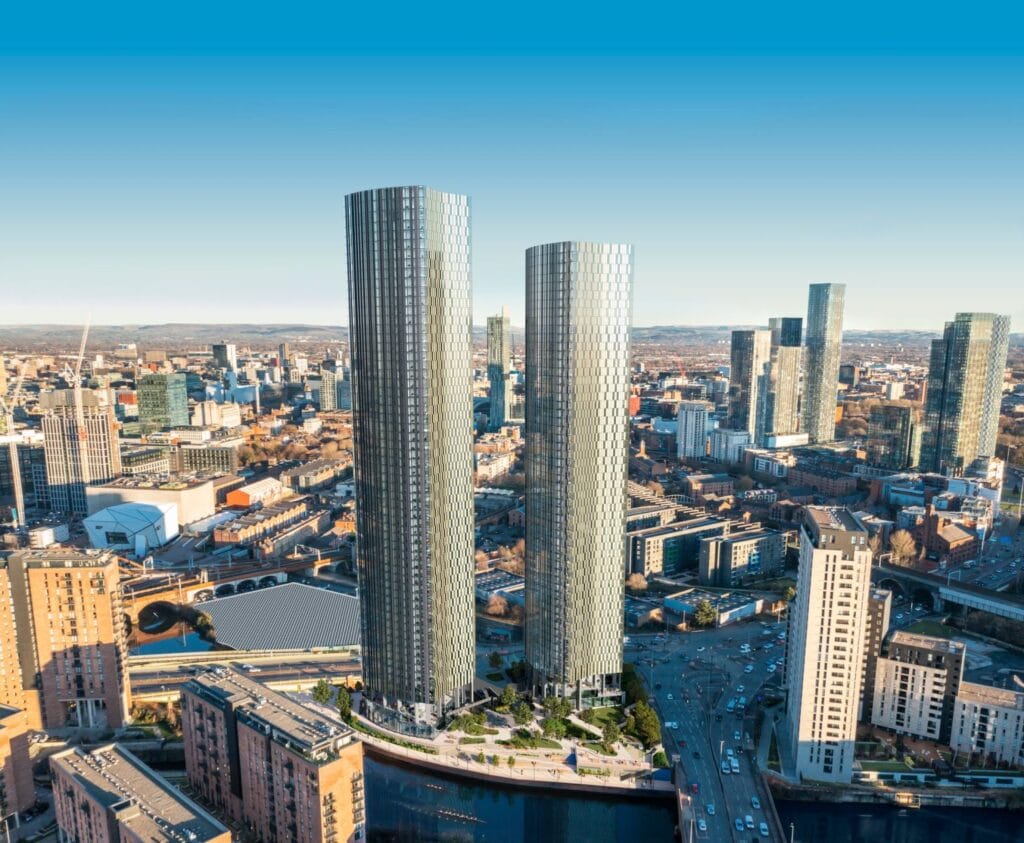
Manchester, as the region’s largest borough, first-time buyers can find several areas in Manchester with affordable house prices.
Currently the cheapest area to buy a home in Manchester is Harpurhey, with an average house price of £139,640.
Other affordable areas include Newton Health, Openshaw, Moston, Moss Side, Gorton, Collyhurst, Belle Vue, Bradford and Beswick where the standard cost of a home ranges between £166,370 and £199,330.
House prices also fall below the region’s average in Cheetham Hill (£200,460), Longsight (£201,140), Hulme (£207,770), Rusholme (£211,180), Blackley (£211,230), Ardwick (£220,360), Crumpsall (£235,770) and Fallowfield (£240,920).
House price data is publicly available information produced by the HM Land Registry. This data is accurate as of May 4, 2023.
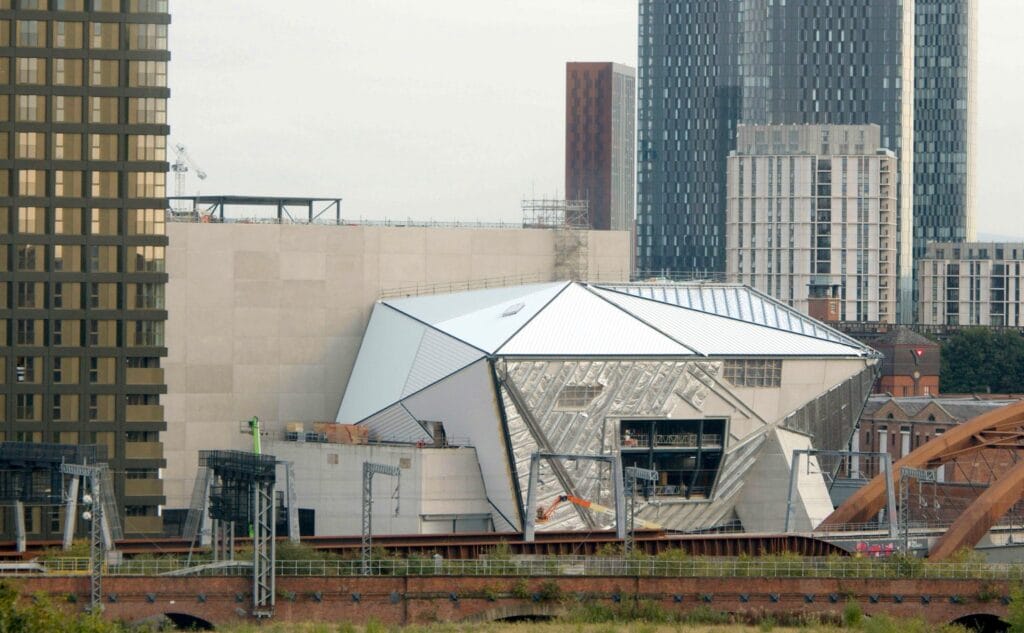
Employment and population are growing more rapidly in Manchester than the average rate for England. There has been a large rise in the number of businesses opening and moving to the city. Increased job creation and a growing economy is attracting large scale development to Manchester, making it an exciting time to invest in this city.
Employment growth in construction is projected to lead the way with the biggest increase in the number of jobs at 50.6% and the highest growth value added at 49.9%. This is likely driven by some of the major developments across the city, including Piccadilly, Mayfield, Great Jackson Street, and St John’s. The other sectors expanding the fastest include business and finance, cultural, creative, and digital and retail.
Demand for additional residential housing is forecast to increase significantly as the city’s population and employment opportunities continue to grow. Property investment in Manchester, especially in the city center, will continue to be a lucrative opportunity for buy-to-let investors in the coming years.
Source: Buy Association
“The Phuket property market is experiencing a surge in demand, fuelled by Chinese property investors and Russian buyers.” – Nattha Kahapana, the Managing Director of Knight Frank Thailand.
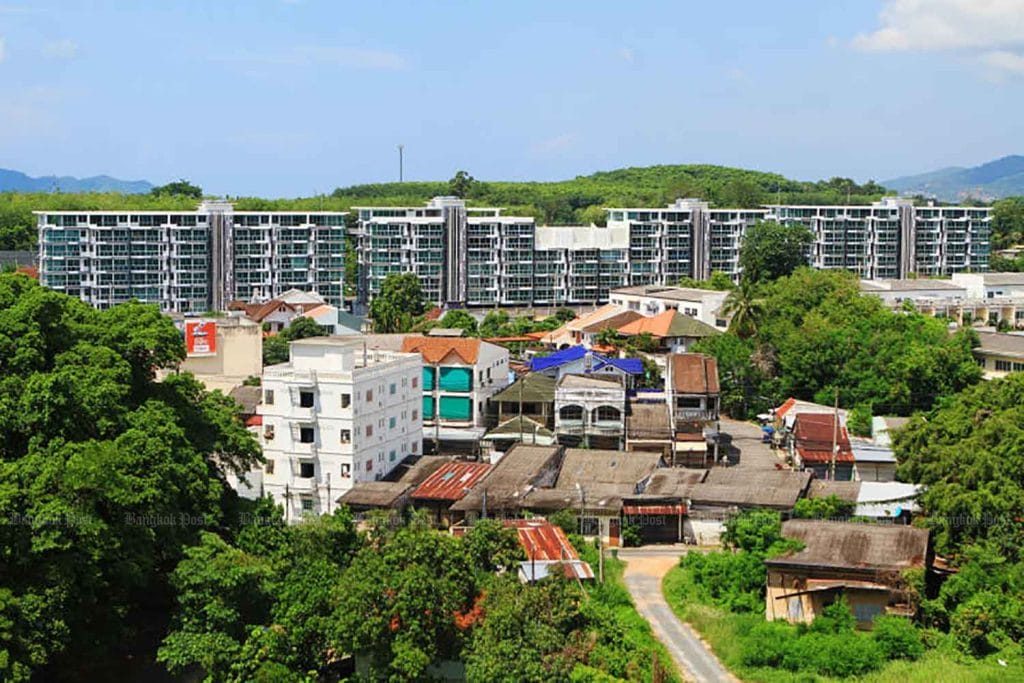
The key reasons for Chinese investment in the following segments of the Thai property market:
1. Condominiums:
Condos in Thailand are popular among Chinese investors due to their relatively low cost and promising rental yields. In cities like Bangkok and Phuket, the demand for rental properties has been on the rise, driven by an influx of tourists and expats.
2. Hospitality sectors:
With the growth of tourism in 2023, it develops hotels, resorts, and serviced apartments rapidly, increasing the tourism economy.
3. Luxury properties:
The number of high-net-worth individuals in China has increased, and there has been a growing demand for luxury residences in Thailand, especially in Bangkok and Phuket. This affects them to choose upscale properties in prime locations, such as penthouses and villas in exclusive developments. Thailand Condominiums with foreigners quotas.
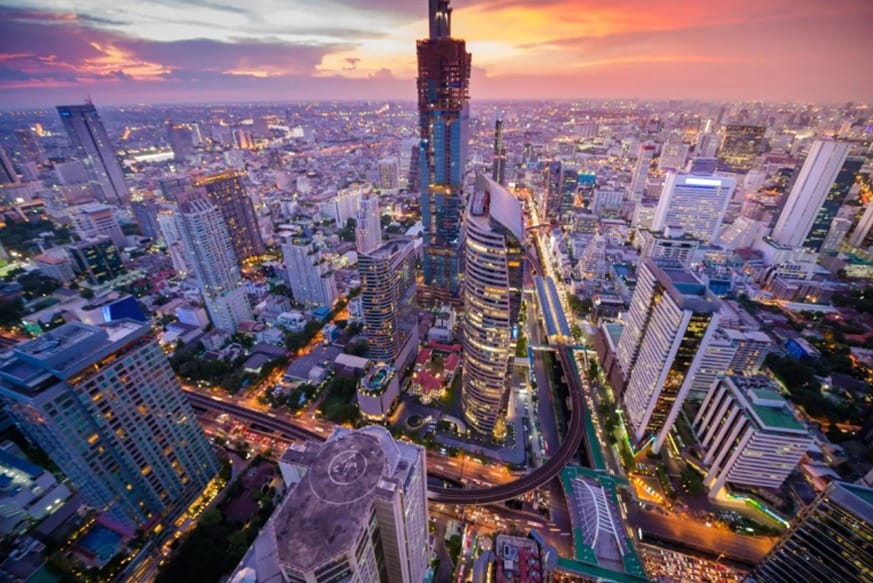
The influx of Chinese investment in Thailand’s property market may create:
1. Economic growth:
The increased investment in real estate can drive economic growth in Thailand, create job opportunities, boost local business, and especially in the construction and tourism sectors.
2. Sustainability impact:
More developers have made a conscious effort to design the project with the environment in mind to fulfill the market needs. Some projects may be constructed with eco-friendly materials, and the developers have implemented energy-efficient technologies to reduce the community’s carbon footprint.
The growing interest of Chinese investors in Thai property has make significant effects on the economy and real estate landscape in 2023.
To know more about oversea properties, please WhatsApp us

After the epidemic, Vietnam’s economy has recovered strongly, and property prices are expected to rise even more sharply than in 2022.

Vietnam’s gross domestic product (GDP) growth in 2022 can reach up to 8%, surpassing the target of 6.5%, according to Director General of the General Statistics Office (GSO) Nguyen Thi Huong.
Assessing the real estate market in 2022, the director of a real estate business in Ho Chi Minh City, who declined to be named, said it became warmer in November and December after the government stabilized the macroeconomic situation. Particularly in the last month of the year, with the State Bank’s decision to raise the credit growth cap for banks by 1.5-2 percentage points, customers began to pay attention to real estate again.
“With the current lending interest rates of 11-12%, real estate or other investment channels will turn out bigger profit than bank deposits,” he said, noting that as property contributes greatly to the country’s GDP, if the market becomes frozen, it will certainly affect hundreds of other industries and the economy as a whole.
Becoming one of Apple’s main manufacturing hubs
Regarding market opportunities next year, he predicted that if the credit situation is positive, the segments of land plots worth below VND1.5 billion ($63,600) and apartments from VND2 billion ($84,800) will thrive. In particular, 2023 will be the year of segments that meet real demand.

Apple will begin producing some of its MacBook computers in Vietnam in 2023, according to a Nikkei Asia report Tuesday. The move reflects the tech giant’s push to expand its manufacturing beyond China, as it grapples with increased U.S.-China trade tensions and supply chain disruptions related to Covid lockdowns.
Besides, Nike, Adidas, Foxconn, Intel, Samsung, etc, have been expanding their presence in Vietnam, showing that the business and investment environment is still stable and has good growth potential.
51% of Nike Shoes are “Made in Vietnam”
Previously, CNBC quoted the financial report of Nike, a corporation specializing in sports products, saying that Vietnam’s shoe production for Nike will account for 51% of its global output, while this proportion is in China. dropped to 21%. In 2006, China made Nike shoes for 35% of its global production. Thus, Vietnam has officially surpassed China, becoming the main production base for this brand. Notably, even Indonesia has overtaken China as the market share of Nike shoe production in the country increased from 21% to 26% in the past 15 years.
To know more about oversea properties, please WhatsApp us

According to the specialist overseas retirement magazine International Living, Thailand is Number 1 in Asia and 11th of all international destinations in the Annual Global Retirement Index (2022).

The Index is recognized as a comprehensive and in-depth survey of the best retirement destinations around the globe, It ranks countries according to the 10 categories of Housing, Benefits and Discounts, Visas and Residence, Fitting In/Entertain, Development, Climate, Healthcare, Governance, Opportunity, and Cost of Living. Topping the list is Panama, for its low cost of living and easy travel within the city. And Thailand scored an impressive average of 72.9, securing its position at number 1 among Asian while its score on Housing is even ahead of many western countries like France and Ireland. Unsurprisingly, many expats see it as their “second hometown”. And foreigners can buy property in Thailand too.
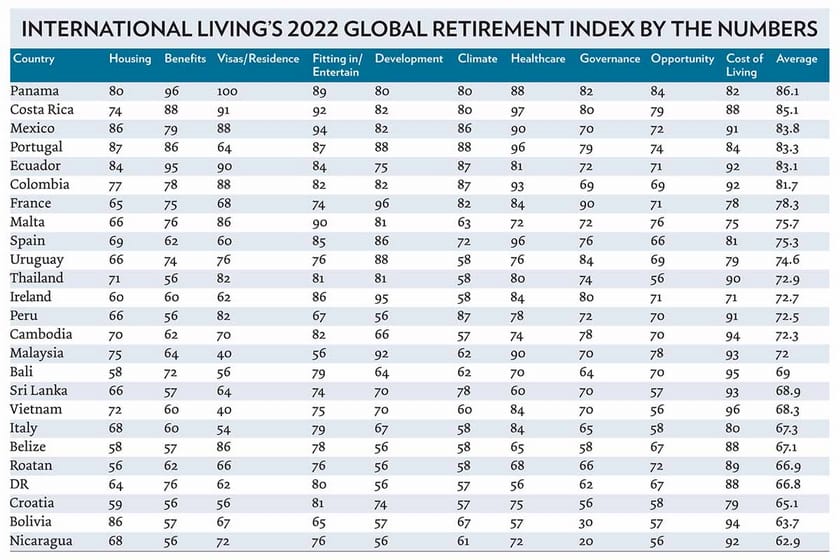
BangKok the most welcomed
Apart from the impressive score on Housing, Thailand also wins a particularly high scores in the Visas and Residence (82), Fitting In/Entertain (81), Development (81), Healthcare (80), and Cost of Living (90) categories. The index also indicates BangKok, Chiang Mai and Hua Hin are the most welcomed retiring cities in Thailand.
There are tremendous reasons for people calling it the dreamy second hometown. An estimated 70,000 retirees call Thailand home for its easy-going lifestyle and lower cost of living. People are attracted by the country’s diversity, from lush green mountains to sunny seaside locations, warm tropical climate, a renewable 12 months visa, good infrastructure and healthcare, and friendly locals. The rest of the listed Southeast Asian countries included (in order) Cambodia, Malaysia, Bali, Sri Lanka and Vietnam. Other countries among the top list are Costa Rica, Mexico, Portugal, Ecuador, Colombia, France, etc.
To know more about oversea properties, please WhatsApp us

Demand from house-hunters jumped 88 per cent across England as the market reopened earlier this month.
Property website Zoopla said the weekly increase occurred between May 12, the day it emerged the market in England would reopen, and May 19.
Demand rebounded particularly quickly in cities along the south coast and in northern England.

Strong growth was recorded in Newcastle and Leeds, while Oxford, Liverpool, and Manchester also had increases in demand.
Zoopla said research among 2,000 people found, around 60 per cent of would-be buyers across the UK intends to go ahead with their plans
But around four in 10 potential buyers said they have put their plans on hold, citing market uncertainty, loss of income, and diminished confidence in future finances as deterrents.
Zoopla said buyer demand was 20 per cent higher than at the start of March as England’s housing market reopened.
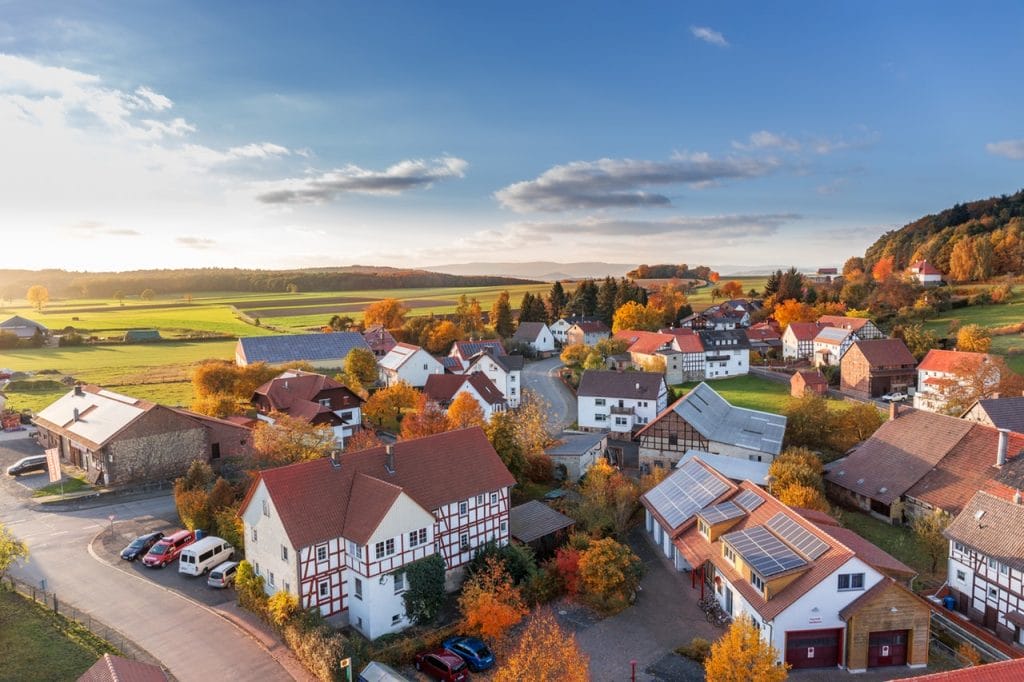
The website said it expects a significant proportion of sales that had been agreed before the coronavirus lockdown to continue but said increased uncertainty over the economic outlook will test housing chains in the coming weeks.
Richard Donnell, director of research and insight at Zoopla, said: “The scale of the rebound in demand for housing is welcome news for estate agents and developers but it is also surprising given projections for a sharp rise in unemployment and a major decline in economic growth.”
Mr. Donnell said he expects people to be more cautious in the coming weeks.
He said: “We expect the latest rebound in demand to moderate in the coming weeks as buyers and sellers start to exert greater caution. Further support from the Government can’t be discounted and would help limit the scale of the downside risks.”
Source: Leicestershire Live
Supply of ready-built factories and warehouses in southern Vietnam will increase by 28 per cent this year to 2.7 million square meters.As more companies arrive from China after the pandemic, supply will rise by 25 per cent to two million square meters in the north, real estate consultancy CBRE reported.

More than 19,000 additional people live in Manchester’s two most central wards today compared with 2004. The city center as a whole was forecast to be home to 65,200 residents by mid-2019, which is an increase of 5,000 in the past 12 months. There was even a 117% spike in people moving to Manchester in July this year compared to 2018.
This north-western city has also retained its top spot as the UK’s most liveable city, an accolade the city has held each year since the Global Liveability Survey by the Economist Intelligence Unit began in 2011. This highlights the continued demand and appeal to live and work in Manchester.
By 2025, Manchester’s population is forecast to surpass 635,000 as an additional 100,000 people are predicted to be living in the city center. Additionally, more students are choosing to remain in the city following graduation at Manchester’s multiple universities. This growth is expected to further fuel demand in the rental market.
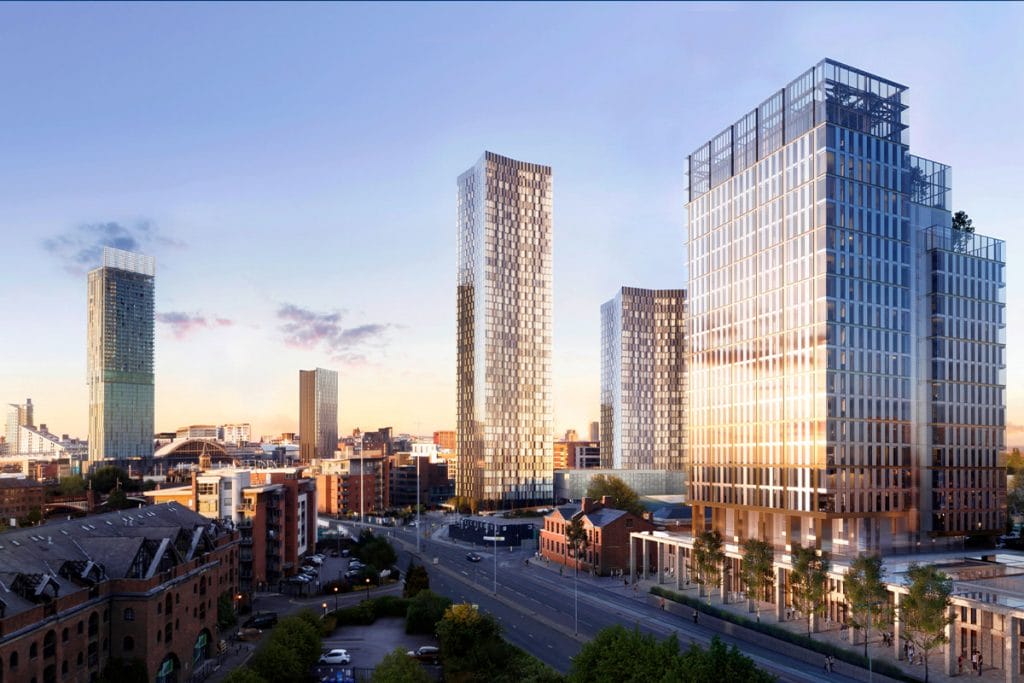
Employment growth in construction is projected to lead the way with the biggest increase in the number of jobs at 50.6% and the highest growth value added at 49.9%. This is likely driven by some of the major developments across the city, including Piccadilly, Mayfield, Great Jackson Street, and St John’s. The other sectors expanding the fastest include business and finance, cultural, creative, and digital and retail.
Employment growth in construction is projected to lead the way with the biggest increase in the number of jobs at 50.6% and the highest growth value added at 49.9%. This is likely driven by some of the major developments across the city, including Piccadilly, Mayfield, Great Jackson Street, and St John’s. The other sectors expanding the fastest include business and finance, cultural, creative, and digital and retail.
Demand for additional residential housing is forecast to increase significantly as the city’s population and employment opportunities continue to grow. Property investment in Manchester, especially in the city center, will continue to be a lucrative opportunity for buy-to-let investors in the coming years.
Source: Buy Association
Supply of ready-built factories and warehouses in southern Vietnam will increase by 28 per cent this year to 2.7 million square meters.As more companies arrive from China after the pandemic, supply will rise by 25 per cent to two million square meters in the north, real estate consultancy CBRE reported.
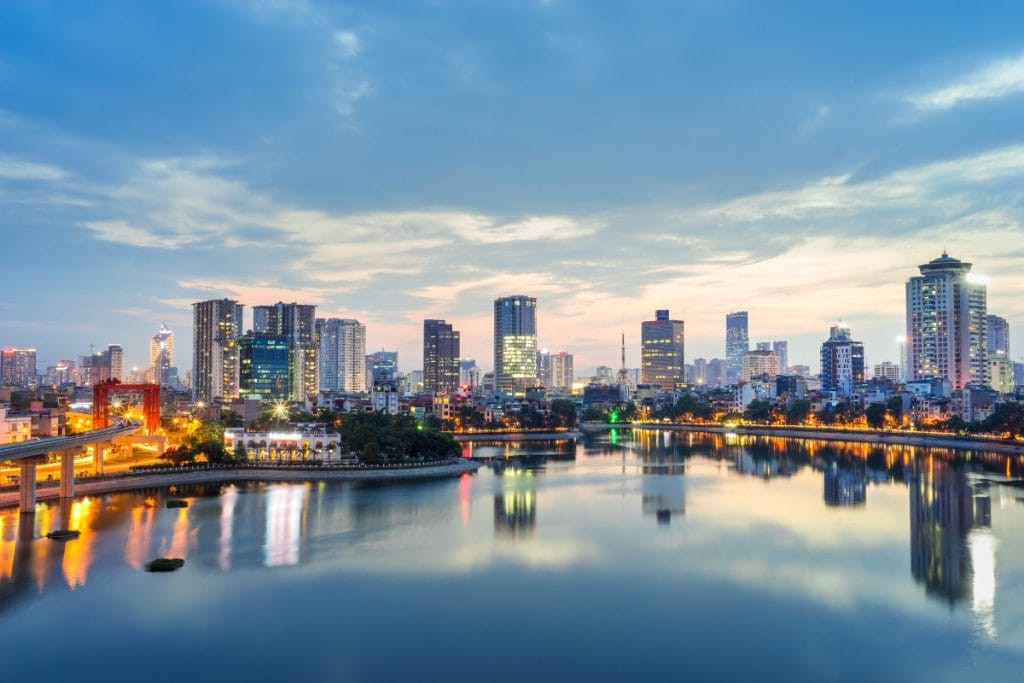
It added that the trend of companies seeking to reduce supply chain dependency on China is likely to benefit Vietnam.”Surging demand from foreign manufacturers seeking to relocate to Vietnam – and a desire to commence operations as soon as possible – are driving demand for ready-built industrial properties,” said Thanh Pham, associate director of research and consulting services, CBRE Vietnam.Hieu Le, director of the firm’s industrial leasing services, said demand for warehousing has been mainly driven by e-commerce companies who are expanding storage space and distribution networks.After the pandemic is contained, the average asking rent for warehouses would increase by 4-11 percent, he noted.”There is growing consumption and distribution of groceries and fresh foods, which are set to accelerate occupier demand for temperature-controlled storage.”
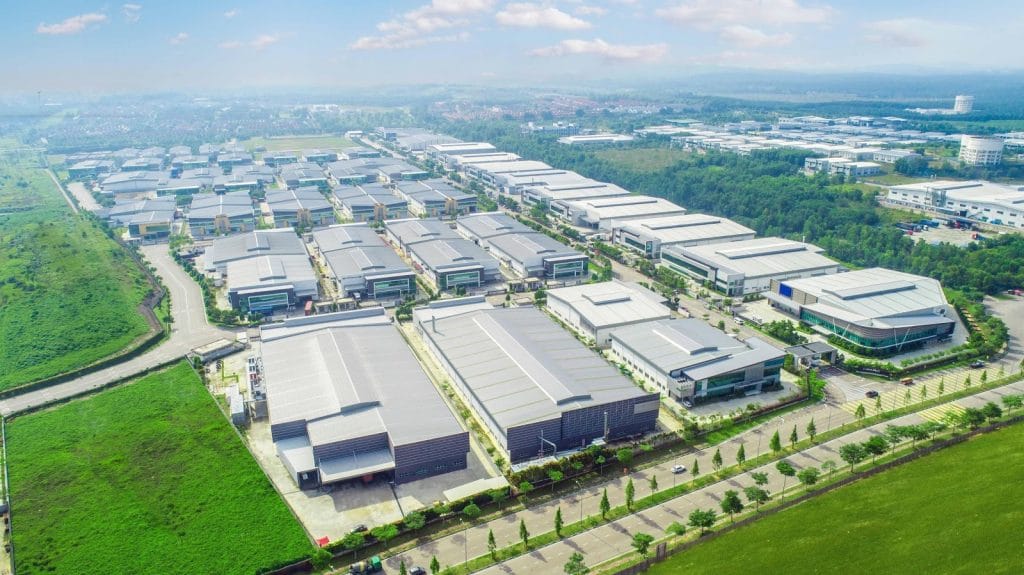
The prime minister’s support for the ‘Vietnam’s Silicon Valley’ initiative has prompted HCMC to push ahead with a plan to merge three districts into one administrative unit.The plan, which will combine Districts 2, 9, and Thu Duc into one administrative unit and make it an “innovative urban area,” has been submitted by the municipal Home Affairs Department to the Ho Chi Minh City People’s Committee.
The department has come up with the plan following a meeting between Prime Minister Nguyen Xuan Phuc and the city.
The plan to make a “city within a city,” temporarily called the “Eastern Town,” won the PM’s endorsement.
This area has been in the making since 2017. City authorities said back then that the plan would generate a bright future for both local residents and businesses.
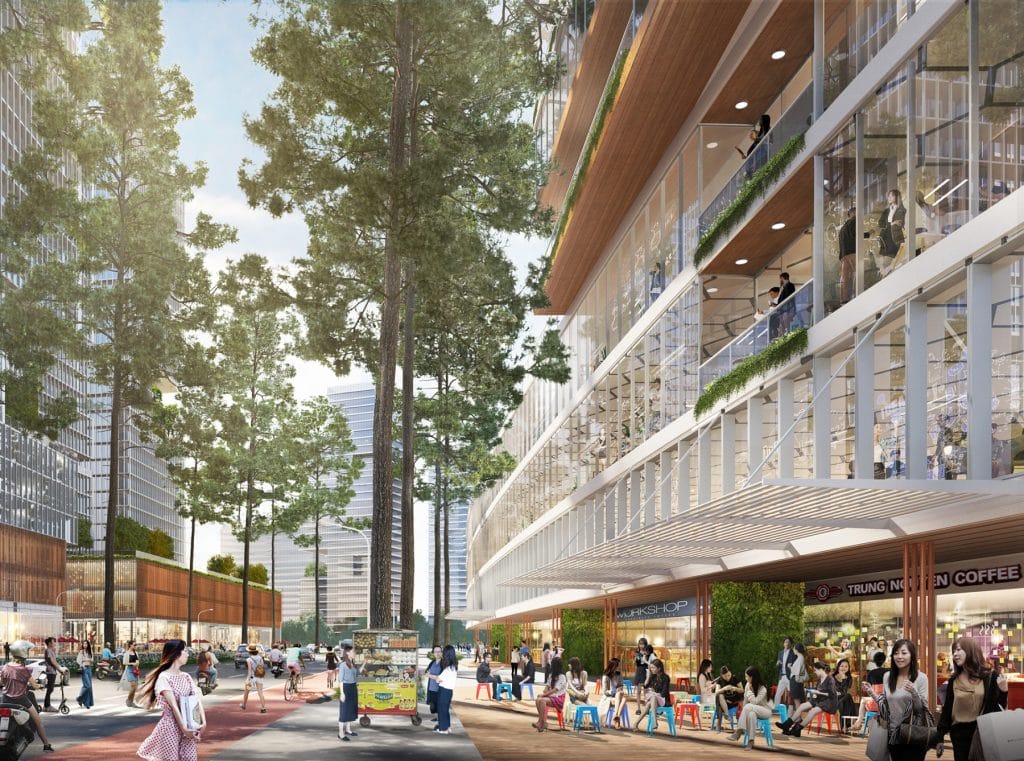
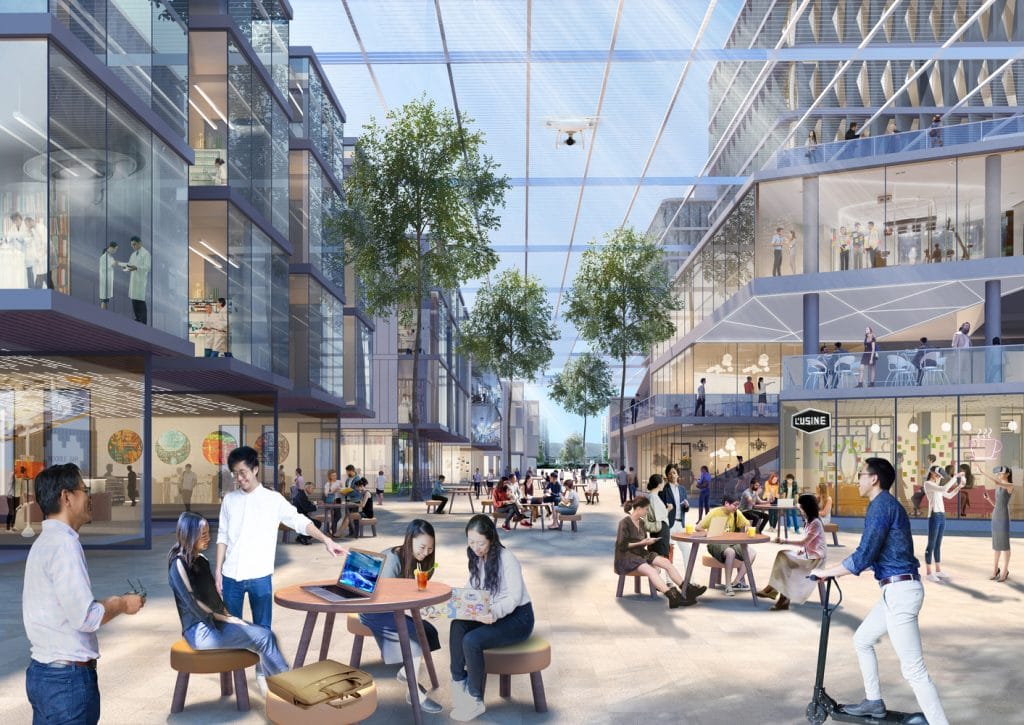
It would encompass the hi-tech park in District 9, the university precinct in Thu Duc District, and the new urban area and financial center on the Thu Thiem Peninsula in District 2 to make one innovative hub to serve the city’s biggest plan to turn itself into a smart city.
The “Eastern Town” is also expected to contribute to the establishment of value-added chains based on high technology, modern technical and social infrastructure of international standards, and effective financial support for businesses.
It was to play a key role in linking scientific and technical research with commercial production to lift residents’ lifestyles to “international standards.”
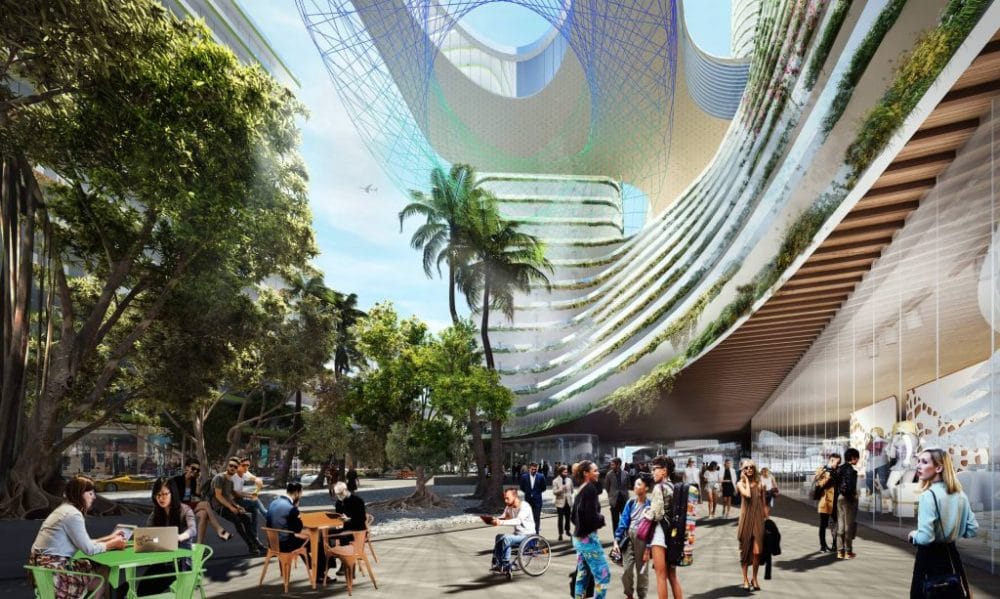
Le Van Thanh of the HCMC Institute for Development Studies had said: “This will be Vietnam’s Silicon Valley.”
The innovative hub would cover more than 22,000 hectares (54,300 acres) with a population of over 1.1 million. Once the plan is implemented, HCMC will have 22 instead of 24 districts.
PM Phuc, while endorsing the merger of districts, said its official name will be decided later. He also assigned the Ministry of Justice to guide the city on the next steps to take.
Source: VN Express
“Every inch of land is gold,” is not a false proposition. It is especially true in real estate. Developers often own large plots of land with a large constructible area, which can easily be used to optimize profit. Yet now, property developers are intentionally going against this traditional formula.
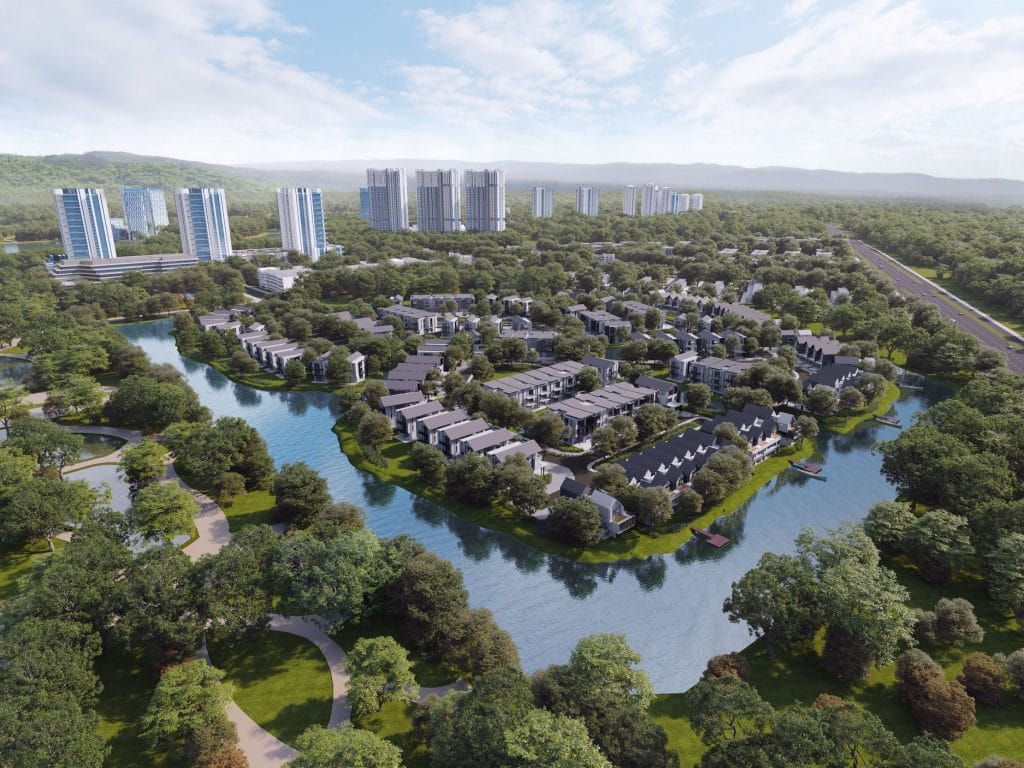
Gamuda Land chose to add to Gamuda City and Celadon City to its portfolio of hundreds of products in Vietnam. In fact, Gamuda City in Hanoi and Celadon City in HCMC have become the largest private parks and some of the most valuable developments in each of the cities.Township developing with greening- initiatives have become an iconic trademark of Gamuda Land – from creating the concept its first visions to entering the Vietnamese market in 2007.
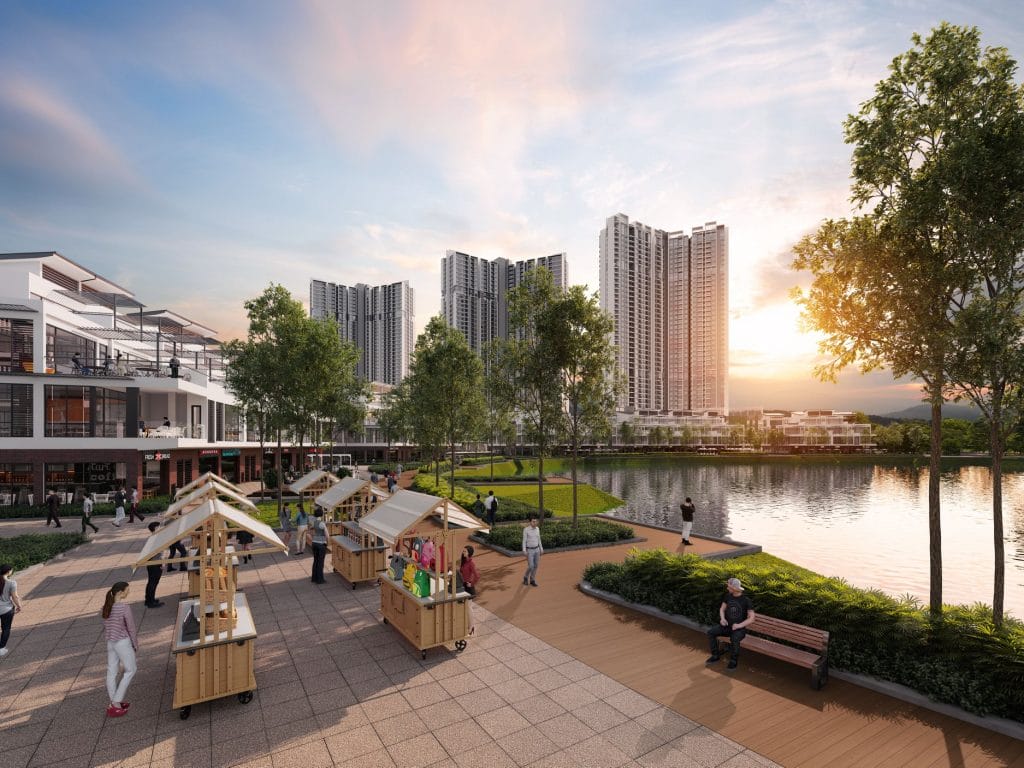

Businesses usually do not “do it first, and think later.” But Gamuda Land’s bold approach in connecting the community with infrastructures first before building any residential precincts show to be extremely effective. After the Yen So Park and its wastewater treatment was completed, Gamuda City became an international model for urban development. The township masterplan is now considered to be a “gold mine” in Southern Hanoi with skyrocketing investment potential, increasing year by year.Thanks to its greening initiatives, Gamuda Land’s value has significantly increased while its products are often associated with a safe and healthy living environment.While Gamuda Land focuses on providing luxury products the properties are close to nature, a trend which has shown to be essential to the middle- to high-income class buyers. Its ‘greening’ strategy has not only strengthened its credibility and but has also helped Gamuda Land establish brand trust among investors.Source: NHIP Cau Dautu